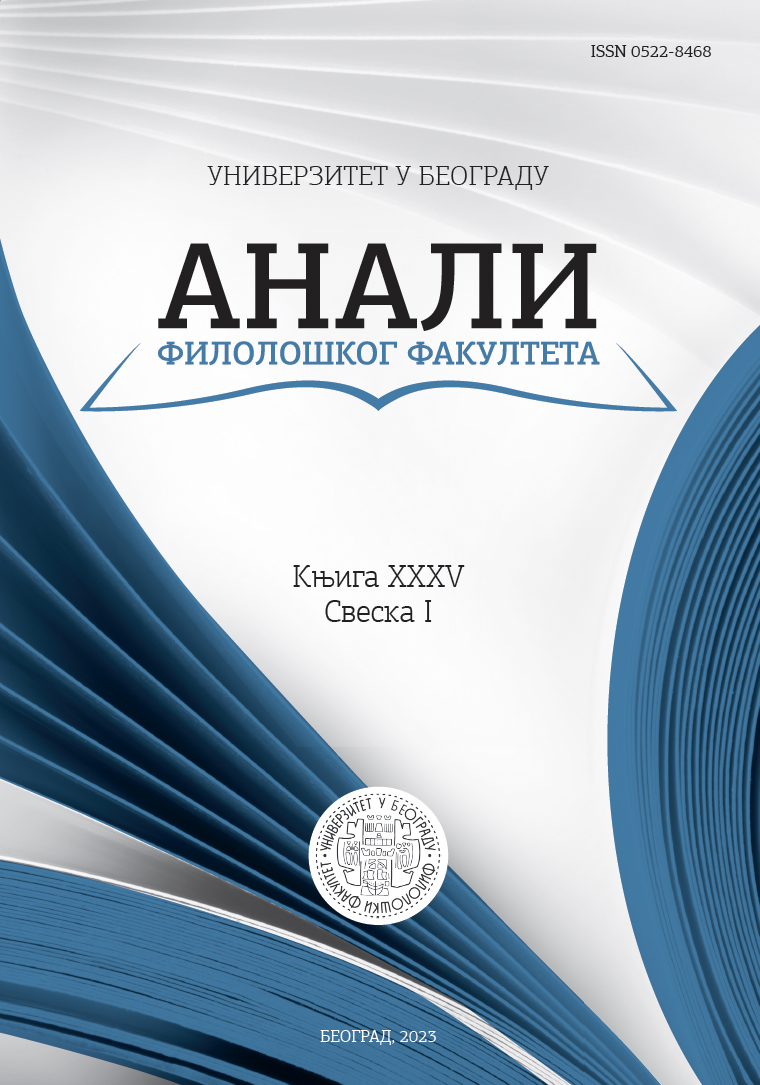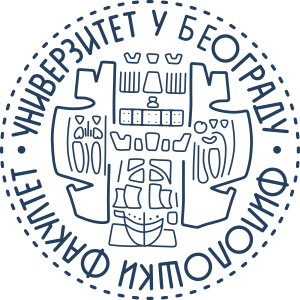Los héroes en el sistema colonial: El sueño del celta de Mario Vargas Llosa y Esperando a los bárbaros de John Maxwell Coetzee
DOI:
https://doi.org/10.18485/analiff.2023.35.1.9Кључне речи:
Mario Vargas Llosa, J. M. Coetzee, colonialismo, violencia, abuso del poder, utopía, héroeАпстракт
En el artículo proponemos hacer un estudio comparativo de la figura del héroe en las novelas El sueño del celta de Mario Vargas Llosa y Esperando a los bárbaros de John Maxwell Coetzee usando teorías sartianas sobre la libertad y la ética, los estudios poscoloniales y el estudio de Joseph Campbell sobre el viaje del héroe. Partimos de la idea de que las dos novelas inician un debate sobre el colonialismo, las fronteras entre la barbarie y la civilización, así como sobre el despertar de los héroes – Casement y el magistrado, respectivamente. Observamos que los contextos coloniales motivan en los protagonistas el deseo de expresar el descontento y la rebeldía, ya que sienten no poder quedar indiferentes ante tales circunstancias. ¿Pueden dos individuos cambiar un mundo injusto? Concluimos que los héroes creados por Vargas Llosa y Coetzee no son grandes personajes históricos sino individuos movidos por razones éticas, por sus ilusiones o utopías, dados sus deseos para ordenar el mundo. Sus programas de utopías deconstruyen paradigmas y metanarrativas de la civilización construidos por el Occidente y lo hacen desde la perspectiva de un hombre occidental. Su posición, sin embargo, no es unívoca. Llegamos a la conclusión de que sus actitudes son ambivalentes, cuestionables y demuestran que todo héroe es ante todo un hombre. Los dos héroes se enfrentan a las miradas burladoras de los que viven en la indiferencia ante los horrores coloniales, están sometidos al juicio de las mismas, por lo que terminan siendo considerados como traidores.
Downloads
Downloads
Објављено
Број часописа
Рубрика
Лиценца

Овај рад је под Creative Commons Aуторство-Дели под истим условима 4.0 Интернационална лиценца.
Authors who publish with this journal agree to the following terms:
- Authors are confirming that they are the authors of the submitting article, which will be published (print and online) in the journal Anali filološkog fakulteta by the Faculty of Philology, University of Belgrade (Faculty of Philology, Studentski trg 3, 11000 Belgrade, Serbia). Author’s name will be evident in the printed article in the journal. All decisions regarding layout and distribution of the work are in hands of the publisher.
- Authors guarantee that the work is their own original creation and does not infringe any statutory or common-law copyright or any proprietary right of any third party. In case of claims by third parties, authors commit their self to defend the interests of the publisher, and shall cover any potential costs.
- Authors retain copyright and grant the journal right of first publication with the work simultaneously licensed under a Creative Commons Attribution-ShareAlike 4.0 International License that allows others to share the work with an acknowledgement of the work's authorship and initial publication in this journal.
- Authors are able to enter into separate, additional contractual arrangements for the non-exclusive distribution of the journal's published version of the work (e.g., post it to an institutional repository or publish it in a book), with an acknowledgement of its initial publication in this journal.
- Authors are permitted and encouraged to post their work online (e.g., in institutional repositories or on their website) prior to and during the submission process, as it can lead to productive exchanges, as well as earlier and greater citation of published work.





